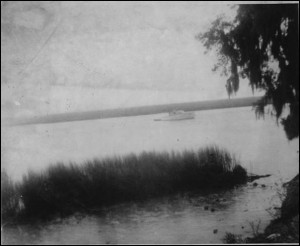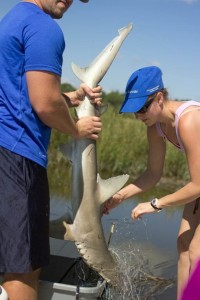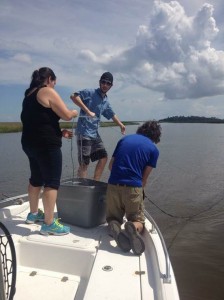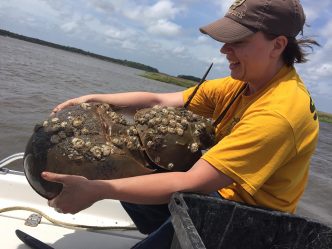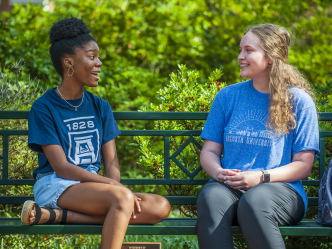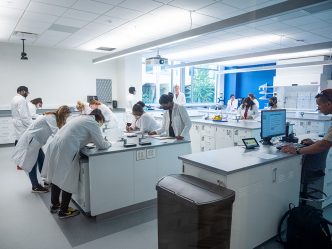The altered landscape of Georgia’s Satilla River may be destroying the area’s ecosystems, according to researchers at Georgia Regents University.
Over the last 100 years, the Satilla River has been cut eight times for industry purposes. However, the most notable passage is the Noyes Cut, which was originally opened in 1910 for log transport and then expanded in the 1930s by the U.S. Army Corps of Engineers.
Since its expansion, Noyes Cut has not been maintained or managed, which has resulted in an increase of sedimentation as well as changes in the water’s oxygen level and flow in terms of tidal exchange and flushing times, said GRU Biology Professor Jessica Reichmuth.
“With these changes to the river’s watersystem, we are now beginning to see a potential impact on the area’s estuarine community,” Reichmuth said. “Research is showing a change in local migrating species such as the American eel and striped bass in addition to commercial species including white shrimp, American oyster, and the blue crab.”
The first complaints about the river’s sedimentation levels were made in 1935 by the Dover Bluff Club landowners. After which, scientists began researching the property. However, Reichmuth says these studies primarily focused on the water chemistry, noting changes in salinity, dissolved oxygen, and water flow. But, the goal of her study is to provide a more holistic assessment of the area by combining an analysis of the water quality and chemistry as well as the biology and ecology of the river’s estuary.
For over six months, Reichmuth and other faculty from GRU’s Department of Biological Sciences have studied the river’s estuarine systems by pulling samples from four sites, including Noyes Cut, to study the area’s fish assemblages, invertebrate and plant communities, soil microbiology, and water chemistry.
Reichmuth is also working with local landowners at the Dover Bluff Club, the keeper of the Satilla River, and researchers at Georgia Southern University to collect data regarding the productivity of the phytoplankton collected.
This study is being funded through GRU’s Center for Undergraduate Research and Scholarship Summer Scholars Program and the Small Grants Program. Reichmuth is currently applying for more funding and hopes to have a complete ecological assessment by 2016. Reichmuth is a marine invertebrate ecologist who received her bachelor’s degrees from Costal Carolina University. She earned her master’s and doctoral degrees from Rutgers University.
 Augusta University
Augusta University
